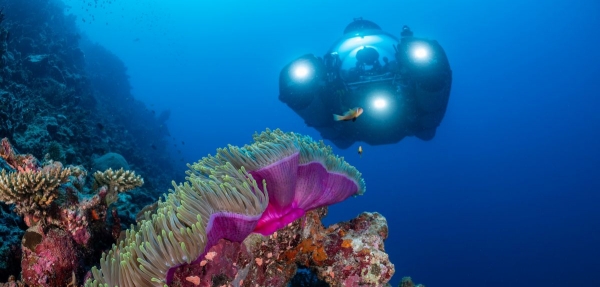Scientists believe little more than 10% of the species that live in our seas have been found and that around two million remain undiscovered. But up to now, the process of finding and scientifically describing species (taxonomy) has been slow and methodical, with the average rate of new species discovery little changed since the 1800s. This approach is clearly unable to address the threats posed by the climate and biodiversity crises that could result in the loss of the majority of species on Earth.
Ocean Census aims to revolutionise this by harnessing the power of technologies such as digital imaging, sequencing, and machine learning, to discover ocean life at speed and at scale. Using cloud-based approaches to share knowledge, the project aims to catalyse global efforts to conserve our oceans, besides significantly advance our understanding of fundamental science. Such areas include oxygen production, carbon cycling, sustainable food production, the evolution of life on Earth, and potentially even discoveries of new medicine and biotechnologies.
The project is a global collaborative initiative, an open network of science, business, media, and civil society organisations joining forces. It has been founded by The Nippon Foundation, the largest non-profit foundation in Japan that focuses on philanthropy through social innovation and Nekton, a UK-based marine science and conservation institute. The project’s headquarters is at Nekton’s base in Oxford and the first Ocean Census Biodiversity Centre will be in Oxford University Museum of Natural History.
Read More: Oxford University
A three-person submersible capable of diving deep into the global ocean, used by Nekton in September 2022 to search for new marine species. (Photo Credit: Nekton/Ocean Census)


